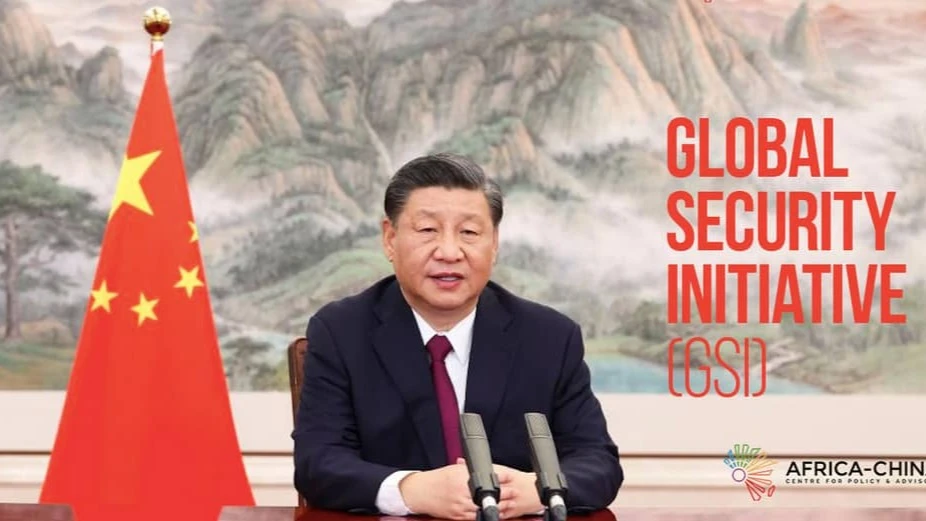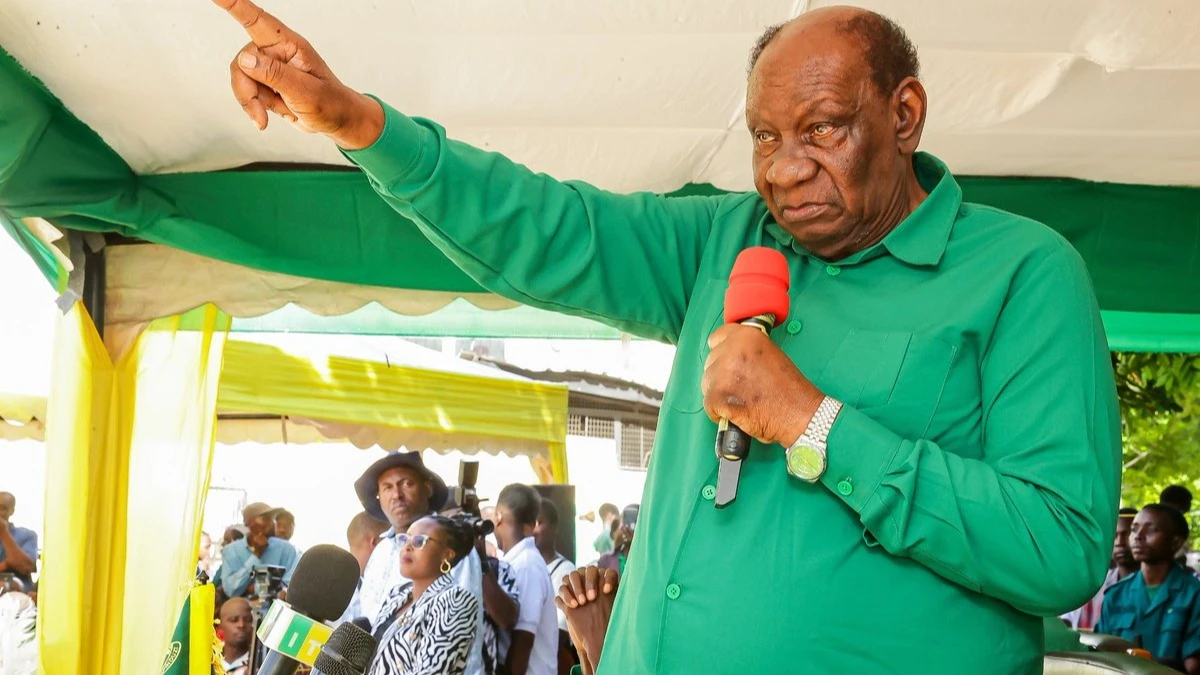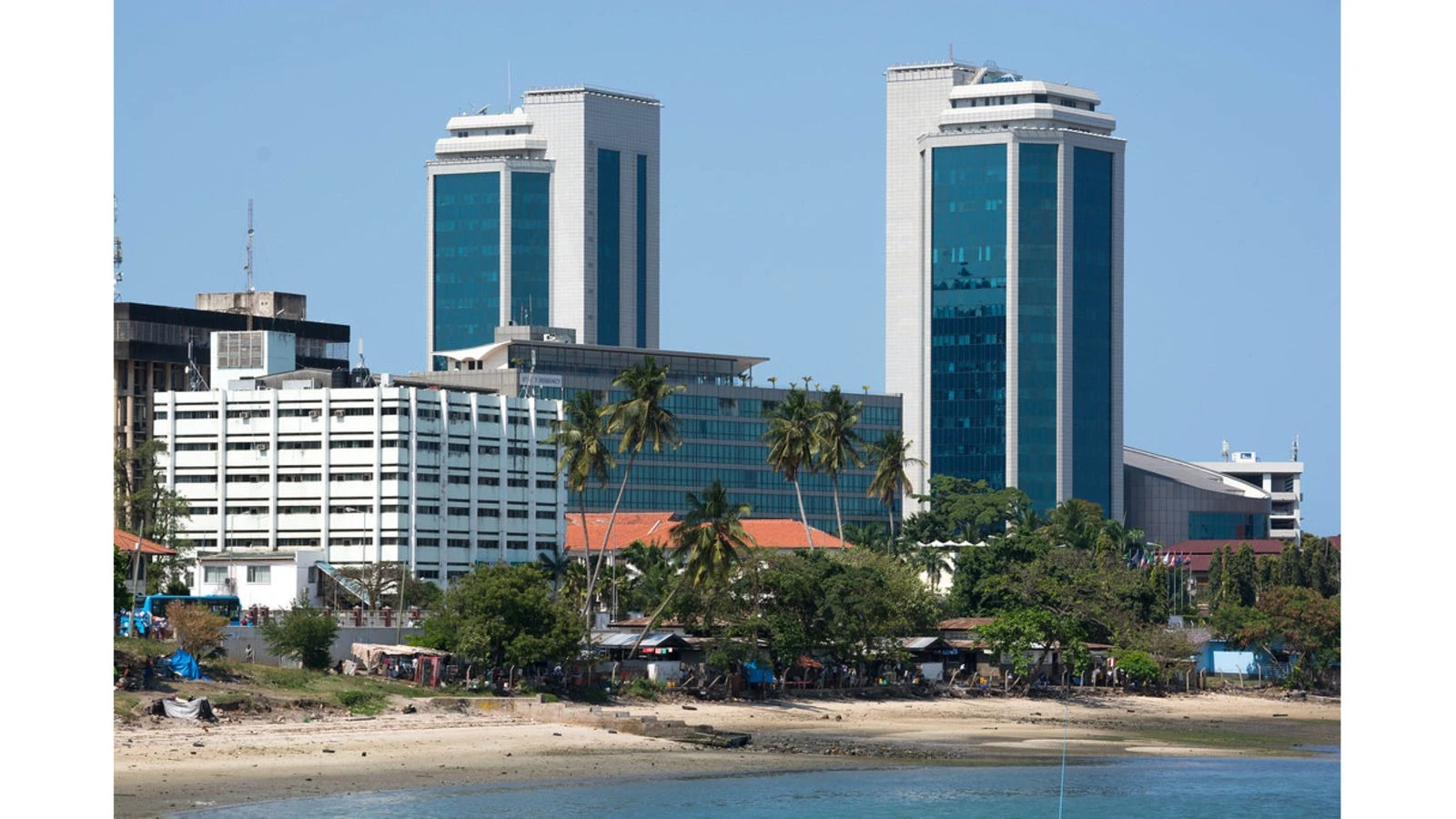The wonders of China's GSI program in international conflict resolution

Security and development are twin situations that depend on each other like the wings of a bird; if one wing is damaged, the bird cannot fly. Human well-being requires security and peace for sustainable development in every aspect of its life.
When countries have policies implemented to fight for and strengthen security, the result is the achievement of development for the human community.
China is a country that has gone through a difficult history that included civil wars, as well as fighting to defend its country against invasion by other countries.
Given this history, it is not surprising to hear that the country is currently at the forefront of preaching security and peace among countries, regardless of the smallness or bigness of the country.
The ancients said that history is a good teacher; indeed, China has learned the value of peace for human life and its development after going through difficult times.
Chinese President Xi Jinping, on April 21, 2022, proposed the Global Security Initiative (GSI) to address global security challenges.
The GSI program aims to address the root causes of international conflicts, strengthen international security governance, and foster sustainable peace and development in the world.
China emphasizes the importance of adhering to the goals and objectives of the establishment of the United Nations (UN) since the end of World War II.
The GSI program outlines the goals and objectives, highlighting the importance of countries holding regular joint reflections on the consequences of the war, leading to the agreement to establish the UN.
At all times, according to the GSI, states should adhere to the principles of equitable security, have balanced, effective and sustainable security systems.
The GSI program emphasizes that security should be the responsibility of every country, and that no country should seek to enhance its security at the expense of the security of other countries.
Under the strong leadership of President Xi Jinping, the Chinese government has made strides in implementing the GSI, nationally, regionally and internationally.
It is right to say without a doubt that the GSI has carried with due seriousness the agenda of ensuring that the world becomes a safe place for all human beings without discrimination.
GSI INTERNATIONAL EFFICIENCY
Since the establishment of the GSI, its implementation has been seen in resolving conflicts in African countries, and has also become popular in Southeast Asia, the Middle East, South America and the Pacific Islands.
The GSI's grand program has been praised and received by the international community, where countries and international organizations have supported it because it is a productive way.
Through the plan, China has used mediation diplomacy and made unremitting efforts for the resolution of political conflicts.
Among these conflicts are those that are chronic, including the Iranian nuclear issue, security threats on the Korean Peninsula, the ongoing war between Russia and Ukraine, the Syrian issue, the historical Israeli-Palestinian conflict and the Afghan issue.
Last November, President Xi Jinping sent congratulatory messages on the special commemoration of the International Day of Solidarity with the Palestinian People.
Also, on November 29, Chinese Foreign Minister Wang Yi, also a member of the Political Bureau of the Communist Party of China (CPC) Central Committee, chaired a high-level meeting of the United Nations Security Council on the Palestinian-Israeli conflict at the United Nations Headquarters in New York.
At the meeting, Wang presented a document containing China's five proposals on resolving the Palestinian-Israeli conflict, and on November 21, President Xi Jinping attended a meeting of BRICS leaders on the situation in the Middle East, especially Gaza.
At the meeting, President Xi Jinping outlined three points as a solution to the Gaza crisis: first, the parties involved in the conflict should immediately cease hostilities, as well as stop violence against civilians; second, the humanitarian corridor should be protected without hindrance; third, the international community should take practical measures to prevent the conflict from crossing borders into other countries.
The success of the GSI has borne good fruit, including the conclusion of a peace agreement between the Kingdom of Saudi Arabia and the Islamic Republic of Iran, under the mediation of China.
The success of the GSI is an example of how countries can resolve disputes and differences through dialogue and consultation to remain good neighbors.
Recently, President Xi Jinping spoke by phone with Ukrainian President Volodymyr Zelenskyy and told him that China will continue to facilitate peace talks and make efforts to stop the war between Ukraine and Russia.
Through the GSI, China facilitated the first peace conference in the Horn of Africa, which ended with important agreements on security and peace.
China successfully held the second Middle East Security Conference and issued a four-point proposal for strengthening security in the region.
WHY GLOBAL SECURITY
The reason why China seeks security among countries is the obvious fact that development of countries, large or small, cannot be achieved without a state of security.
In showing goodwill for world security, China is a country that demonstrates in practice its sincere commitment to seeking the security of countries for peace and development.
China, which is the largest peacekeeping troop contributor among the permanent members of the United Nations Security Council, is also the only country among the five nuclear-weapon states to have pledged not to use such weapons in conflict.
The country firmly adheres to the consensus that "nuclear war cannot be won and must never be fought". President Xi Jinping has repeatedly stressed that nuclear weapons must not be used and nuclear wars must never be fought.
The Chinese government has signed more than 20 international arms control treaties, and pushed for the conclusion of a joint statement among major nuclear-weapon states prohibiting their use in war.
Modern China, through GSI, will strengthen the global security strength and international justice regardless of the level of development achieved by the country; it can never oppress or expand against other countries.
China has three major initiatives that benefit the international community: the Global Development Initiative (GDI), the Global Civilization Initiative (GCI) and the GSI itself.
China, which is currently one of the world's most powerful economies, respects the history of mankind's prosperity in conjunction with security and civilization for sustainable development.
Security is the foundation of development, and development is the driving force behind security and civilization; thus making the GDI, GCI and GSI important pillars for an international community with a shared future for humanity.
The interests of mankind in the world must be based on unity, security and peace, rather than division and living in precarious conditions of distrust and hostility.
The GSI is a suitable solution that answers the question of what concept can be used to ensure that the world becomes a safe place for humanity to develop itself.
According to the 2024 GSI implementation report, the initiative has successfully encouraged national, regional and international achievements in almost all continents.
Over the past two years, China has been working with countries and national, regional and international organizations to promote security cooperation under the GSI.
The China Institute of International Studies (CII) and the Center for International Security Initiative Studies conducted a special study on the progress of the implementation of the GSI.
The report explains that security concerns the peace and development of mankind and its future, emphasizing that one country cannot cause insecurity in another country for the sake of its own security.
It explains that the world is currently undergoing rapid changes in every aspect of life, which have not been seen in a century, with the incidence of conflicts for various reasons increasing.
"The world has entered a new era of turmoil and change. The global security situation has become increasingly precarious, with an increase in major security incidents that are not being addressed in a timely manner to save humanity."
The international community has been facing insecurity since the end of the Cold War, with a growing lack of peace, development, security and stability,” the report said.
China, as a veto-member of the United Nations (UN) Security Council, in the GSI works with the UN to ensure that it maintains world peace in accordance with its constitution and founding principles by implementing its security principles in an equitable manner.
“...to uphold the vision of shared security, in its broadest sense, through sustained cooperation to advocate for the resolution of conflicts through dialogue, consultation and support for all appropriate efforts to address conflicts without humanitarian harm,” the report said.
At the China-Arab States summit, President Xi Jinping made it clear that China welcomes Arab countries to participate in the GSI and will continue to contribute what he called “Chinese wisdom to promoting peace and stability in the Middle East.” President Xi said China is willing to work with countries to implement the GSI, promote the resolution of international disputes through dialogue and consultation, and promote political settlement.
The GSI calls on countries to adjust to the changing international situation in the spirit of solidarity and address complex and interconnected security challenges with a win-win approach.
It aims to eliminate the root causes of international conflicts, improve global security governance, and promote international joint efforts to achieve stability.
The initiative is a solid idea that proposes a new path for countries to follow in closing the gaps that cause instability and addressing global security challenges to achieve international stability and security.
Therefore, it can be said that the GSI is a vision of peace, development, and cooperation that integrates the goal and requirements of building a global community with a shared future for mankind.
In implementing the GSI, China has continued to balance development and security, put development at the core of its international agenda, and worked to strengthen sustainable security through sustainable development.
AFRICAN SECURITY
As the world is facing a number of conflict zones due to various reasons -regional and international- peace is needed instead of war; trust is needed instead of worries; unity is needed instead of division; and cooperation is needed instead of confrontation.
China is working hard to find solutions with Chinese characteristics on major issues, promote peace talks, and strive for political solutions.
For example, in the Ukraine-Russia conflict, China is in a position of justice and encourages dialogue to achieve peace. In February 2023, it issued a document entitled "China's Position on the Political Settlement of the Ukraine Crisis", carrying 12 proposals.
Among the proposals are respecting the sovereignty of all countries, abandoning the Cold War mentality, abandoning hostility, initiating peace talks, and reducing strategic risks.
In developing its relations with African countries, China has stood by the principle of mutual trust and solidarity for the broad interests of all parties.
Through the GSI, China has supported African countries in security matters by providing assistance to help Africa overcome threats to its peace, security and stability.
In August 2023, President Xi Jinping, at the China-Africa Leaders' Meeting, said that China is willing to work with Africa to implement a new vision of common security.
Under the GSI, China has strengthened cooperation with Africa in policies and visions and fully implemented security cooperation, including providing military support to the African Union, and actively cooperating in the control of small arms and light weapons.
Also, to firmly support African countries in maintaining regional security and combating terrorism.
China hosted the second and third China-Africa Peace and Security Forum in 2022 and 2023, and built consensus on cooperation and strengthened strategic communication between the defense departments of China and Africa.
China has fully supported Africa in its efforts to address security challenges, while continuing to implement the vision of peace and development in the Horn of Africa.
The special envoy for the Horn of Africa of the Chinese Foreign Ministry has made seven visits to Africa in two years.
In his congratulatory letter to the second China-Africa Peace and Security Forum, President Xi Jinping noted that China has always been committed to developing relations with Africa, taking the right path of friendship.
He wrote that this is done based on mutual interests, trust, love and goodwill, and that China will work with Africa to safeguard the international system and uphold the unity of countries and the implementation of justice between the two countries.
"Building a China-Africa community with a shared future in the new era," the leader said.
China, as a major country and a permanent member of the United Nations Security Council, bears the responsibility of maintaining international strategic stability for the sustainable development of the world.
The issue of security concerns world peace and development, and the future of humanity. The world is currently undergoing rapid changes that have not been seen in a century.
The security situation in the world has become confusing and raises concerns about the fragmentation of countries and the resulting security concerns that affect development.
It is clear that, since the end of the Cold War, the international community has been faced with a lack of peace, development and security.
The questions of what kind of security concept that countries need to achieve collective security have become urgent issues of our time, requiring appropriate solutions.
The GSI is a concept that invites countries to participate in ensuring human security for development wherever they are.
CHINA WISDOM
President Xi Jinping once said that through the GSI, China will continue to contribute Chinese wisdom to promoting world peace and stability, and that China is willing to work with all parties to implement the GSI in resolving international disputes through dialogue, consultation and promotion of political settlement.
In order to achieve lasting world peace and build an international community with universal security, China has continued to make good use of dialogue platforms for international security exchanges.
In order to achieve lasting world peace and build an international community with universal security, China has participated in bilateral and multilateral security cooperation with various parties under the GSI.
Indeed, in the past two years, China has increased internationalization, exchange of ideas and policy communication on international security issues through dialogue forums and platforms.
It should be noted that China's foreign policy is never provocative or territorially expansive, never seeks hegemony, but remains a strong force for maintaining regional and international peace and stability as a whole.
The existence of the GSI program and its implementation to find solutions to chronic and newly emerging conflicts among countries is a testament to the implementation of this policy.
Judging from the results of the implementation of the GSI, since its establishment in 2022 until now, it can be concluded that it has borne gratifying fruits for the security and sustainable development of humanity in the world.
Top Headlines
© 2025 IPPMEDIA.COM. ALL RIGHTS RESERVED

























